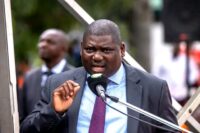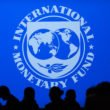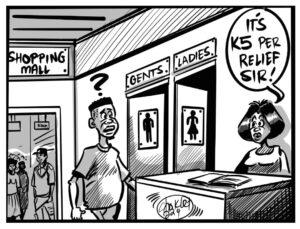THE International Monetary Fund says Zambia has made significant progress on addressing its macroeconomic challenges, but discussions on the country’s economic bailout package are expected to continue.
And Finance Minister Dr Bwalya Ng’andu has reiterated that with the help of the IMF, Zambia will be able to address its fiscal and economic challenges, return the country to growth and improve citizens’ livelihoods.
According to a statement, Thursday, IMF staff team leader David Robinson stated that while there was broad agreement on the nature and cause of the country’s underlying macroeconomic imbalances, discussions on the Zambian government’s request for a Fund-backed Extended Credit Facility were expected to continue following additional work required on the appropriate policy package.
“Broad agreement was reached on the nature and cause of the underlying macroeconomic imbalances. Resolving the macroeconomic challenges will require navigating the need to continue to support the population and the economy through the pandemic in a constrained fiscal environment, while setting the stage for a sustained recovery as the impact of COVID-19 eases and macroeconomic imbalances are resolved,” Robinson said in a statement availed by the Fund’s press officer Lucie Mboto Fouda.
“The recent sharp increase in copper prices should also provide additional resources to help smooth the adjustment. Significant progress has been made and discussions are expected to continue in the next few weeks, following additional technical work on the appropriate policy package.”
He stated that the Zambian government needed to clearly detail its fiscal reform agenda to achieve sustained consolidation to correct current fiscal imbalances
“The Economic Recovery Programme lays out the government’s broad policy directions and discussions sought to map that strategy into more detailed policy steps. Key challenges that need to be addressed include: detailing the fiscal reform agenda to achieve the large and sustained fiscal consolidation needed to correct current fiscal imbalances; securing increased fiscal revenues to provide the fiscal space for government to meet its development objectives; bolstering governance and the efficiency of the use of public resources, including through debt and expenditure transparency; halting the incurrence of domestic arrears (including on fuel and in the electricity sector); and ensuring that the social protection scheme is fully funded with timely payments to protect lower income groups,” Robinson added.
And in a separate statement, Dr Ng’andu stated that the discussions held during the Virtual Mission were positive and constructive.
“The authorities and the IMF agreed on the nature and causes of Zambia’s macroeconomic imbalances, the current state of its public finances and the challenges that need to be addressed to return the country to a sustainable macro-fiscal situation over the medium-term. The Ministry of Finance and the IMF staff agreed to use Zambia’s recently published Economic Recovery Programme as a foundation for a more detailed policy reform agenda aimed at restoring public finance sustainability, while at the same time securing Zambia’s development objectives, and ensuring social protection for the most vulnerable social groups in the country. Discussions were positive and constructive. Exchanges will continue in the next few weeks towards an agreement on a policy package and a path to fiscal and debt sustainability,” stated Dr Ng’andu.
“We thank the IMF team for the very open and constructive discussions we had during the Virtual Mission. Government is committed to secure a programme with the IMF in support of our efforts to strengthen our response to the shocks caused by the COVID-19 pandemic and ensure a solid foundation for a prompt and inclusive economic recovery. We value the work we have embarked on with the IMF and will pursue our discussions on detailed policy measures to return our economy and public finances to a sustainable trajectory.”
An IMF staff team led by David Robinson held Virtual Meetings from February 11-March 3 to discuss the Zambian government’s request for support under the IMF’s Extended Credit Facility.
IMF staff also held meetings with Bank of Zambia (BoZ) governor Christopher Mvunga, senior government and BoZ officials, members of the Budget and Public Accounts Committees of Parliament, among other stakeholders.











